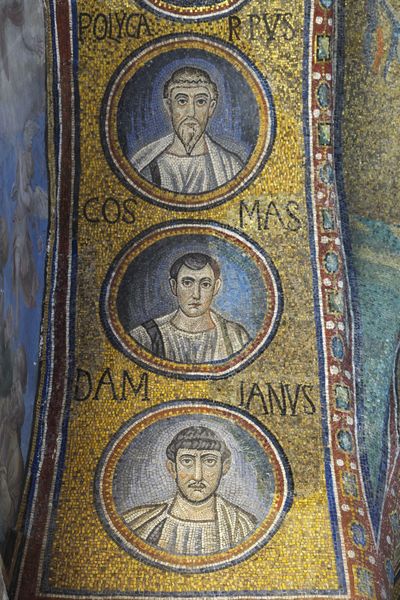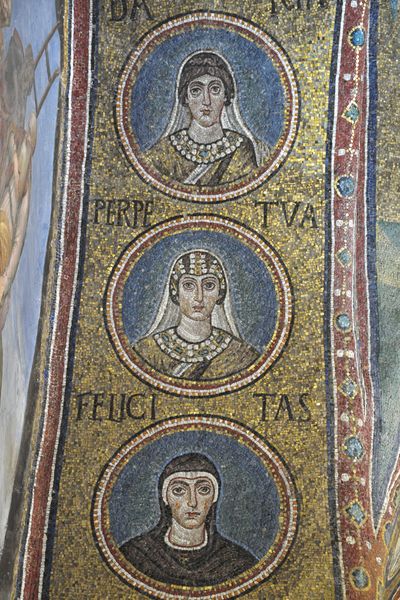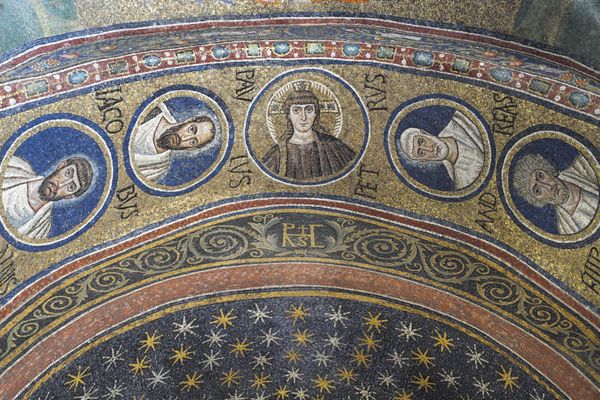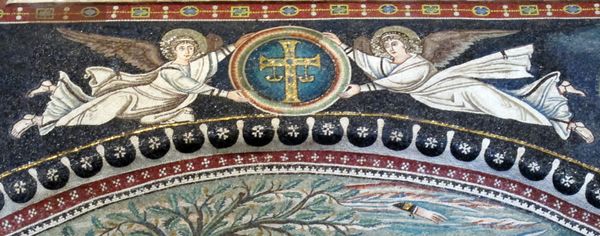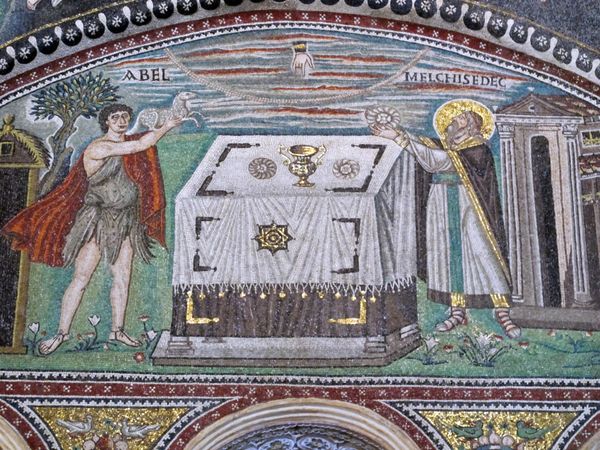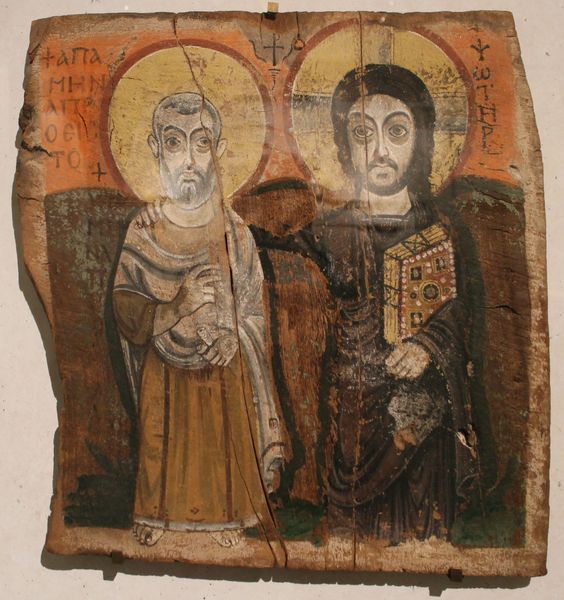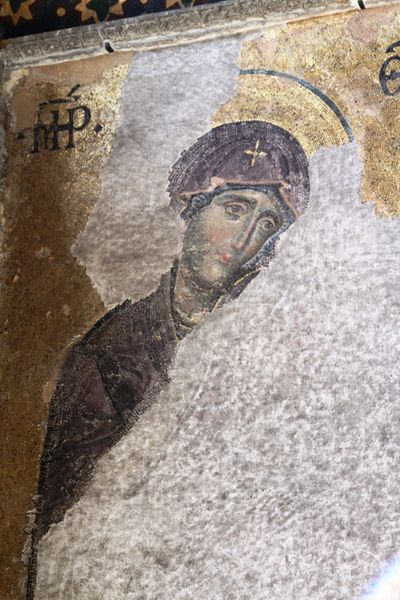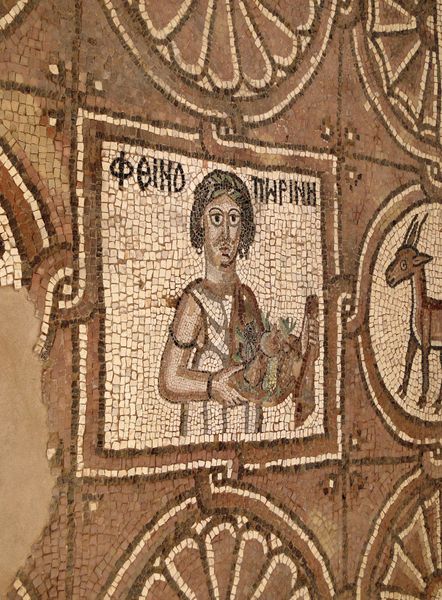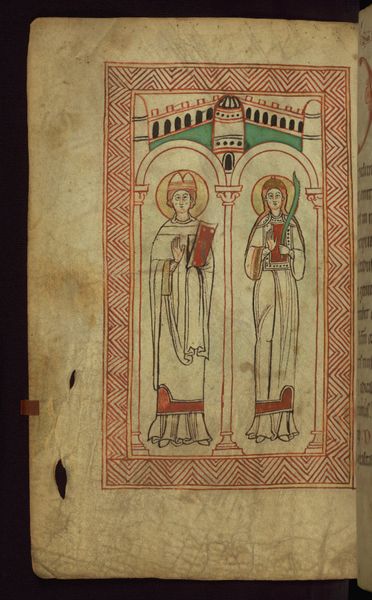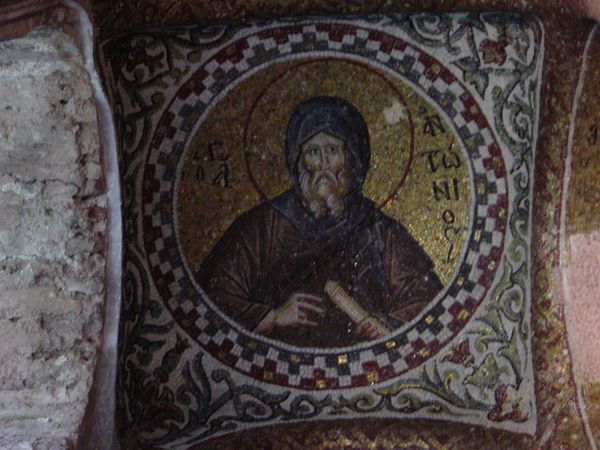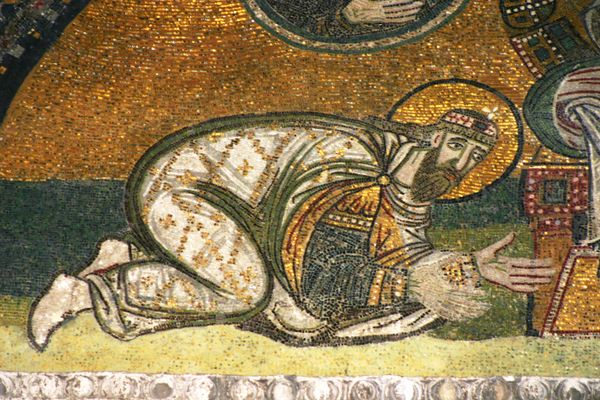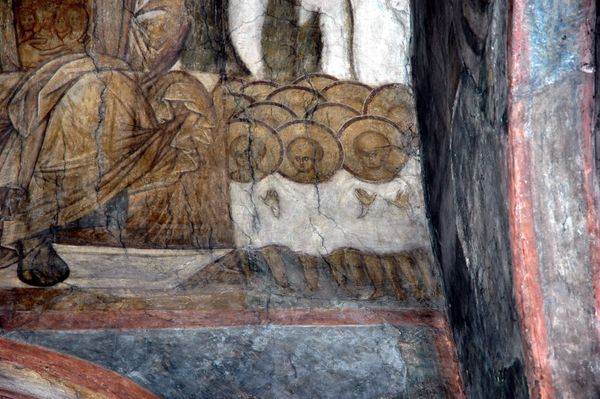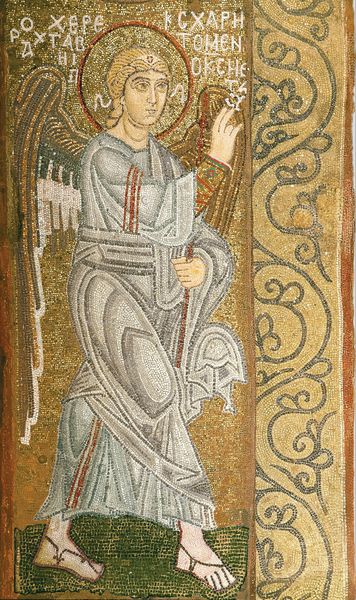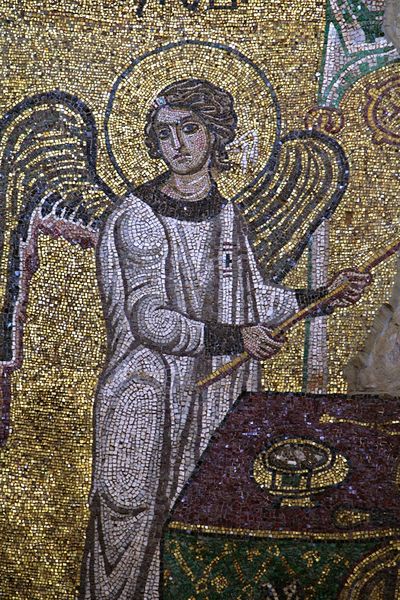
mosaic
#
portrait
#
mosaic
#
byzantine-art
#
medieval
Copyright: Public domain
These mosaics were made in Ravenna, Italy, by Byzantine artists, likely in the 5th or 6th century. These are just a few of the many mosaic portraits that adorn the Archbishop's Chapel. Consider for a moment the social role of an Archbishop's Chapel. It is a site of power, a place where religious authority is visually asserted. The Byzantine Empire, with its capital in Constantinople, was a major center of artistic production at this time, and its influence extended throughout the Mediterranean world. Ravenna, as a key city in the Byzantine Exarchate of Italy, became a site where Byzantine and Western traditions met. The use of mosaic as a medium, with its small pieces of colored glass or stone, allowed for intricate and durable images that could convey complex theological and political messages. The gold backgrounds, the stylized figures, and the emphasis on symbolism all speak to a culture that valued hierarchy, order, and divine authority. To understand these mosaics better, we can consult historical texts, theological treatises, and archaeological reports. Art is never made in a vacuum; its meaning is always contingent on its social and institutional context.
Comments
No comments
Be the first to comment and join the conversation on the ultimate creative platform.
